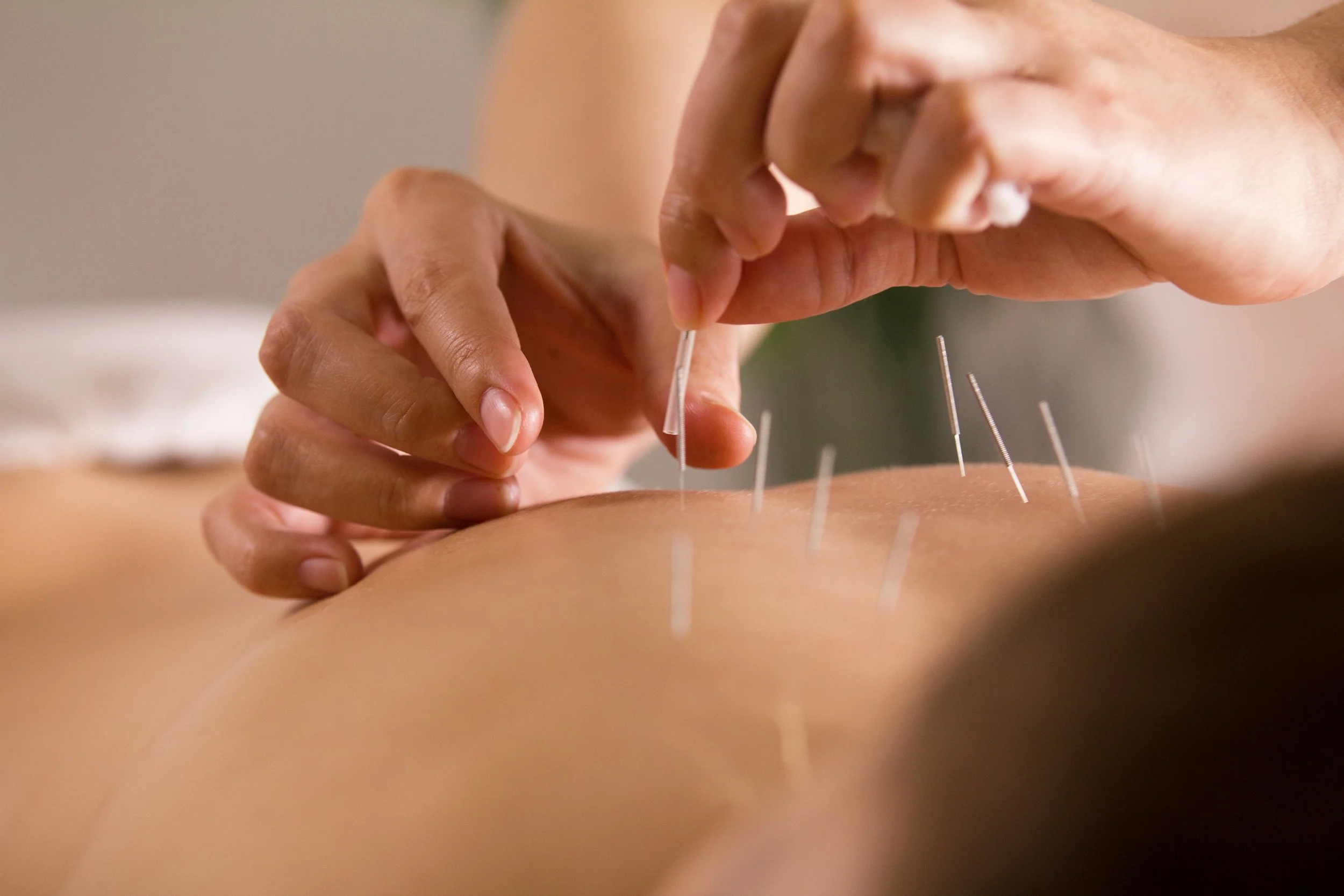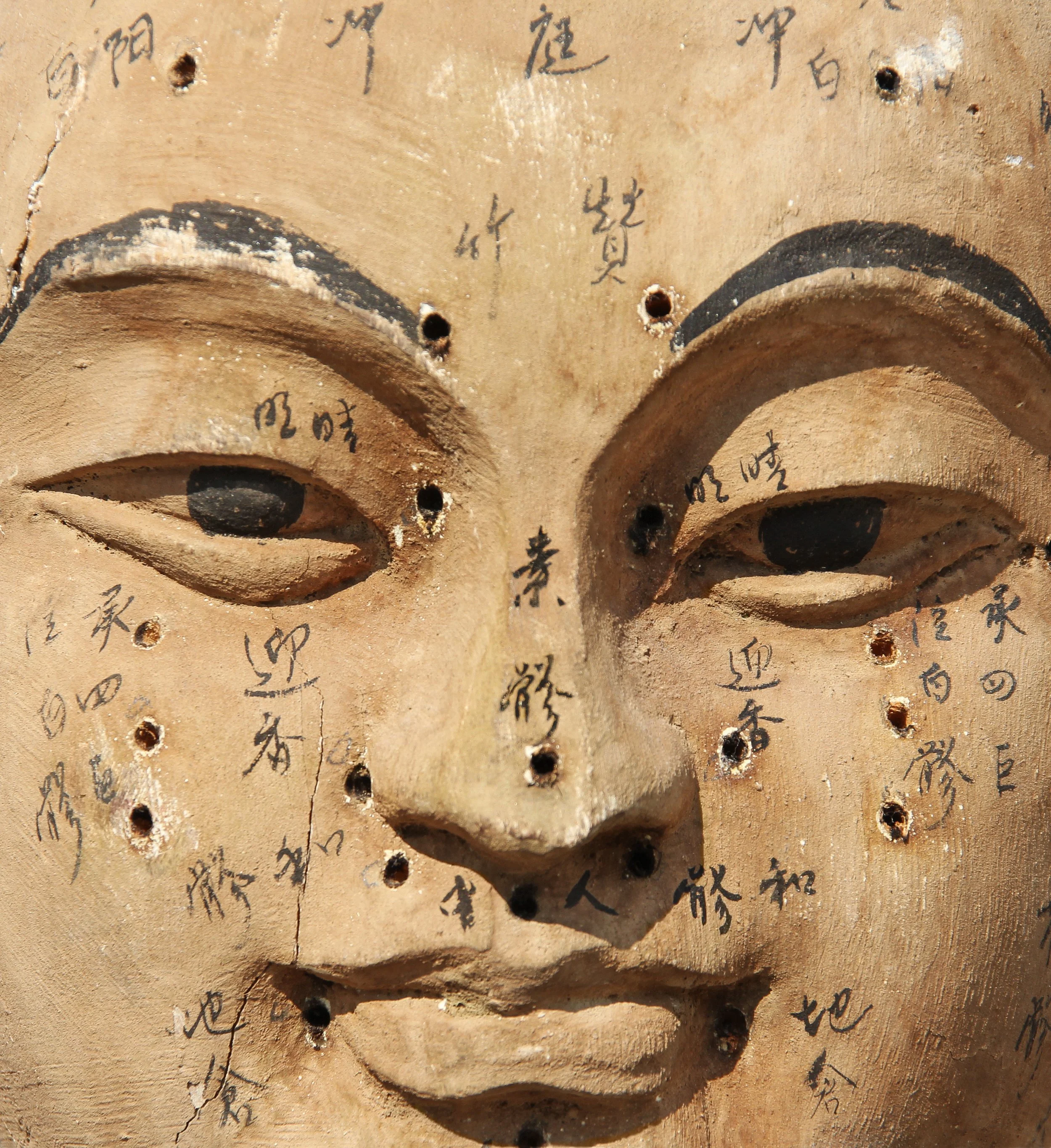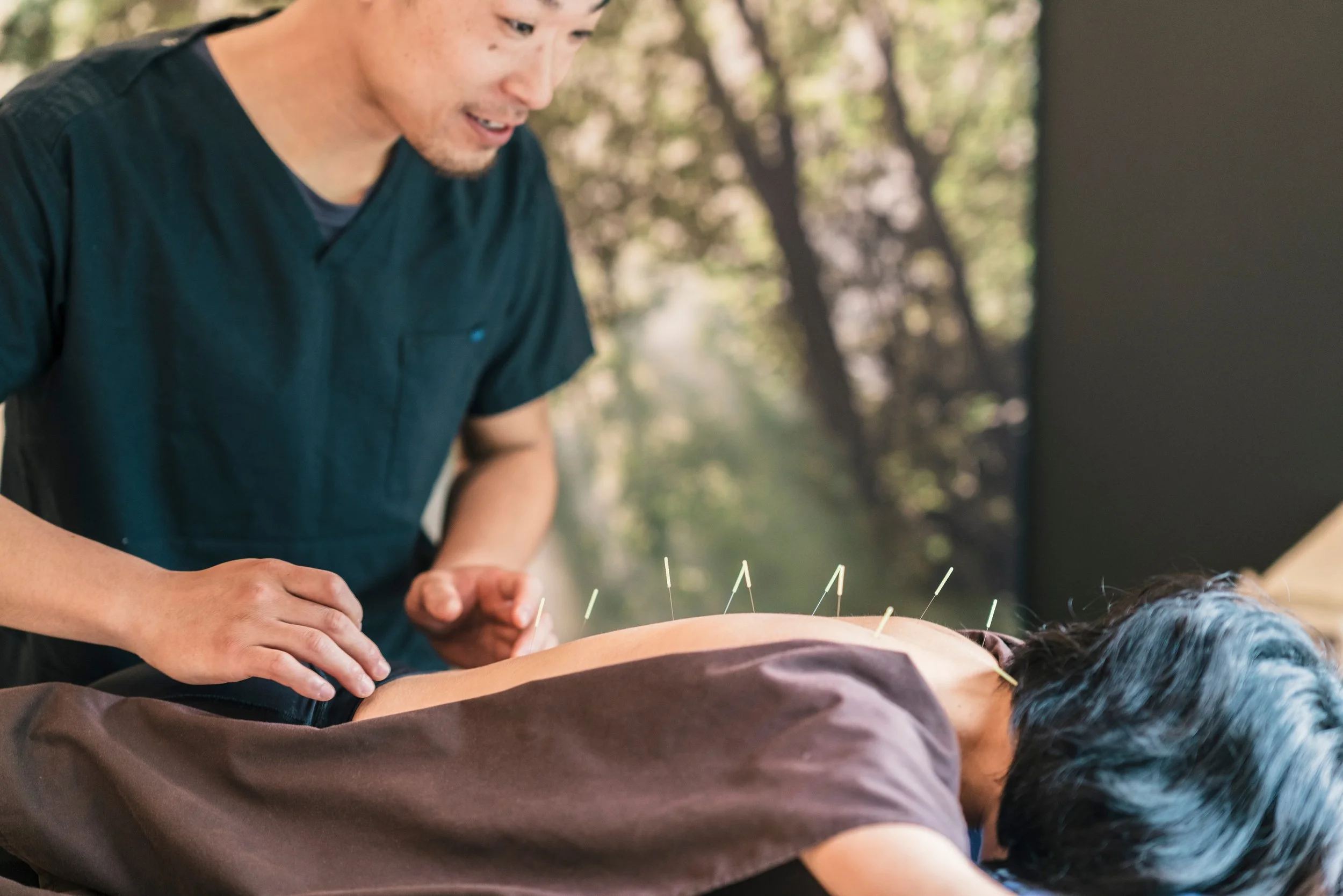INTRO TO: Acupuncture
Chances are, you’ve seen someone covered in acupuncture needles before - but did you know what they were doing? Acupuncture is a medical treatment that has been around for over 3,000 years, and it boasts a wide array of health benefits. Whether you’re an acupuncture expert or brand new to the world of acupuncture, read on to learn more about acupuncture and why it might be right for you.
What Is Acupuncture?
Acupuncture is a practice that involves the placement of small, thin needles in patients to relieve pain and improve the flow of energy throughout their bodies. This practice is a major component of Traditional Chinese medicine and is based on the concept that improving the flow of energy (called Qi, pronounced chee) through the body can be done by applying pressure to the roughly 2,000 acupuncture points in the body. This enhanced energy flow is believed to lead to decreased pain and improved overall health.
A typical acupuncture session involves placing a series of sterilized, single-use needles at various depths throughout the body to reduce pain and promote overall wellness. Even people with a fear of needles can partake in acupuncture, because acupuncture needles are far lighter and thinner than typical medical needles. These needles are placed in specific points that are connected by energy pathways to allow energy to flow uninterrupted through the body. Although it may look scary, the procedure is painless, and people who receive acupuncture often feel energized or relaxed after an acupuncture session.
How And Where Is Acupuncture Taught?
Becoming an acupuncturist involves studying both modern science and ancient tradition. As such, professional acupuncturists typically hold bachelor’s and master’s degrees, receive accreditation from the Accreditation Commission for Acupuncture and Oriental Medicine, and must hold an official license to practice acupuncture in their specific state. Many prospective acupuncturists will also train under current practitioners, and some will even receive doctorates in their specialty. When you’re looking for an acupuncturist, make sure they’re well accredited and have enough experience for your comfort level.
What Are The Benefits Of Acupuncture?
The benefits of acupuncture vary widely. In general, acupuncture users tend to report that acupuncture leads to decreases in their chronic pain, headaches, asthma, menstrual cramps, and more. Additionally, although acupuncture may be a tenet of Traditional Chinese medicine, numerous scientific studies have been performed that have shown that acupuncture can stimulate the central nervous system, releasing helpful chemicals into the body that can help alleviate pain and reduce migraines.
However, rigorous scientific studies of acupuncture are relatively few and far between, and scientific research in the field is still in its youth. Therefore, while acupuncture may be effective at reducing specific types of pain, it should only be used as a complementary treatment for more serious medical issues. If you’re interested, consult your local wellness practitioner or doctor to learn more about whether acupuncture might be an effective treatment for you.
How Has Acupuncture Evolved Over Time?
Perhaps the biggest change that acupuncture has undergone over time has been its fusion with specific tenets of Western medicine. For example, a recent scientific paper proposed an overview of its scalp acupuncture, a technique that fuses basic acupuncture techniques with scientific knowledge of the skull and brain in order to influence the central nervous system. This acupuncture technique has been shown to demonstrably help patients who have suffered strokes, Parkinson’s disease, traumatic brain injuries, and even PTSD.
In the 21st century, acupuncture continues to expand and change. For example, some practitioners have proposed laser acupuncture, a technique that replaces needles with focused beams of light, making it a suitable alternative for children or patients who fear needles. As acupuncture evolves even further in its 3,000+ year history, it’s likely that there are still plenty of developments to come in the world of acupuncture.
What Does An Acupuncture Session Involve?
A typical acupuncture session will last for about 60 minutes and begins with a consultation to determine exactly what you’re looking to get out of your session. Your acupuncturist will examine your body and design a treatment plan; many acupuncture patients will return to their provider for 6-10 sessions to complete a given course of treatment.
Once it’s time for the needles to be inserted, you’ll lie down and your acupuncturist will gently slide a series of very thin needles into your skin to a given depth. This process is painless, and many patients don’t even feel the needles going into their skin. Once the needles are placed in the correct spots, your acupuncturist may manipulate the needles by moving them around or applying heat or electrical pulses. After about 10-15 minutes of letting the needles rest, your acupuncturist will remove the needles and let you go home.
Although some patients may be intimidated by the application of up to 20 needles at a time, the entire process is designed to be relatively painless. Many patients actually report feeling relaxed or energized after their acupuncture sessions. If you’re concerned about the needle application process, don’t hesitate to let your acupuncturist know so they can do their best to make you feel safe and comfortable.
What Are Some Drawbacks To Acupuncture?
Acupuncture is relatively low-risk, as practitioners commonly use sterilized, single-use needles and are trained in placing them painlessly. Nevertheless, some side effects of acupuncture may include soreness, bruising, and light bleeding. People who have pacemakers or bleeding disorders, as well as pregnant people, may be at risk of increased bleeding or going into premature labor during the acupuncture process. Be sure to discuss any medical conditions you may have with your wellness practitioner or acupuncture provider before undergoing an acupuncture session.
How Do I Learn More About Acupuncture?
Acupuncture is a medical treatment that is also a tradition with a rich history. For over 3,000 years, many people have turned to acupuncture to enjoy living life to the fullest without chronic pain, migraines, and more. If you’re dealing with such pain, acupuncture may be an easy and rewarding way to improve your quality of life.
If you’re interested in making acupuncture a part of your wellness journey, feel free to start a conversation with your local wellness practitioners or reach out to a member of the Elated today to learn more.






